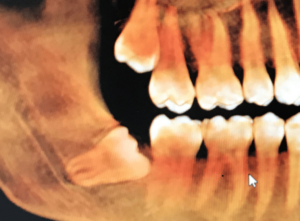With age comes wisdom, or so they say. Along with age come the wisdom teeth, usually around age 17 to 25. Notably, the wisdom teeth are also called the third molars in the back corners of your mouth.
Every year, dentists remove about 10 million wisdom teeth from five million people in preventative procedures. However, there are cases where wisdom teeth can remain in place. If they have adequate room, wisdom teeth can help you chew.
Notably, when they first emerge, it’s normal to have some discomfort. But, how do you know if you can leave your wisdom teeth in place?
To be sure, it’s best to choose an experienced oral surgeon like Dr. Andrew Greenberg.
Do I Need My Wisdom Teeth Removed?
Dr. Greenberg is an award-winning oral surgeon rated among Westchester’s Top Dentists for twelve years. With an exam and a Panoramic x-ray, he can see if your wisdom teeth are impacting your other teeth. Sometimes, wisdom teeth may not need removal, and you’ll have a choice to leave them in place.
Why Removing Wisdom Teeth Can Be Wise

In such cases, they are considered “impacted,” and are best removed. Why?
If impacted wisdom teeth remain in place, it can lead to:
- Infection that causes pain and potential systemic illness
- The formation of cysts and tumors
- Damage to adjacent teeth
- Damage to the underlying bone
- Periodontal (gum) disease and related problems
Left untreated, impacted third molars can trap food particles, allowing cavity-causing bacteria to grow. Plus, it may be impossible to floss between the wisdom teeth and neighboring molars. Sometimes, the impacted teeth will damage neighboring ones.
As bacteria grows, it gets down into the gums. Then, infection and periodontal disease are probable. From there, you will likely have pain, swelling, and stiffness in the jaw.
Therefore, removing impacted wisdom teeth is essential for overall health. If it looks like your wisdom teeth are impacted, removing them early is generally easier than waiting until the tooth and roots develop further.
Also, removing wisdom teeth may be recommended as part of orthodontic treatment like braces. Additionally, removing impacted teeth may be part of treating gum disease.
Leaving Your Wisdom Teeth in Place
In some cases, Dr. Greenberg will determine the wisdom teeth can remain in place. However, they may require monitoring to ensure problems don’t develop later. Therefore, it’s highly encouraged to see your dentist for routine check-ups and cleanings. During your visit, they can evaluate how your wisdom teeth are doing. Then, if you have any pain, be sure to contact your dentist right away.
In some cases, adults who have retained wisdom teeth may eventually need them removed later in life. Generally, the cost to remove wisdom teeth later in life is higher. Plus, the risk for complications can be higher as people get older, so it’s something to consider.
With an evaluation by Dr. Greenberg, you can discuss the benefits of either removing or keeping your wisdom teeth in place. Then, you can choose the option best suited to your needs, fully informed about wisdom teeth removal.
We hope this information about “Wisdom teeth removal: What to know before you get them out” is helpful.
Dr. Greenberg is the best choice if you’re considering wisdom teeth removal in Westchester County. Call on us anytime at 914-342-7782 or contact us here.
Today, we’re taking all precautions necessary to keep everyone safe.
See more about Wisdom Teeth Removal from the American Dental Association below:
